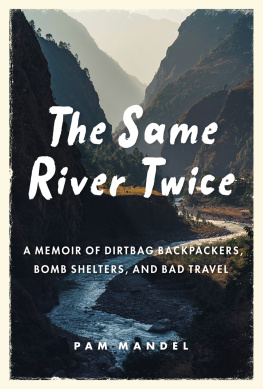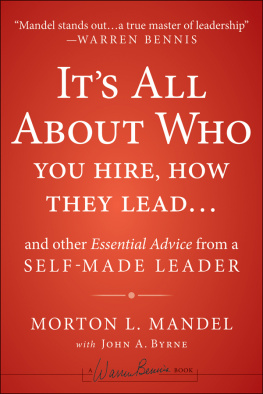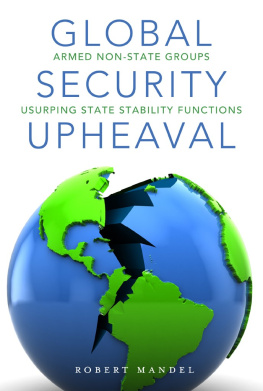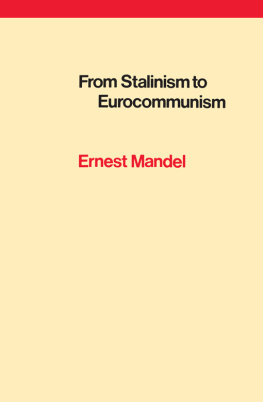


Copyright 2020 by Pam Mandel
All rights reserved. No part of this book may be reproduced in any manner without the express written consent of the publisher, except in the case of brief excerpts in critical reviews or articles. All inquiries should be addressed to Skyhorse Publishing, 307 West 36th Street, 11th Floor, New York, NY 10018.
Skyhorse Publishing books may be purchased in bulk at special discounts for sales promotion, corporate gifts, fund-raising, or educational purposes. Special editions can also be created to specifications. For details, contact the Special Sales Department, Skyhorse Publishing, 307 West 36th Street, 11th Floor, New York, NY 10018 or .
Skyhorse and Skyhorse Publishing are registered trademarks of Skyhorse Publishing, Inc., a Delaware corporation.
Visit our website at www.skyhorsepublishing.com.
10 9 8 7 6 5 4 3 2 1
Library of Congress Cataloging-in-Publication Data is available on file.
Cover design by Brian Peterson
Cover photo credit: Getty Images
Print ISBN: 978-1-5107-6005-9
Ebook ISBN: 978-1-5107-6100-1
Printed in the United States of America
Contents
A girl in trouble is a temporary thing.
Romeo Void, 1984

CHAPTER ONE:
Welcome to Israel
W e have to go, the Israeli boy said, his English clear, direct. Follow me.
I looked out the window at a black sky, at flashes of red and yellow. Was it fireworks? Why were there fireworks? I could see the outline of the mountains for a moment, then they were gone until the next flash. We pushed our chairs back and stood up, confused. The table was set with a white tablecloth. There was a golden roasted chicken, candles, the good tableware. These people were strangers. We were guests in their home for Shabbat dinner. Had we done something wrong?
We have to go, he said again.
We followed him to the door and in the next flash, we understood. The lights werent fireworks. They were weapons. They were bombs. We were being bombed.
Now. Rockets.
We were out for the eveningme, my roommate Lauren, and two Israeli boys about our age. Our kibbutz volunteer program included the opportunity to make local connections. On this particular night, it meant wed gone to Nahariya. It was the nearest town to our northern Israel kibbutz. We were having Shabbat dinner with an Israeli family to see what life was like off the kibbutz.
The boys were polite and one of them spoke good English. I was angry that Id been assigned to go with Lauren. We had so little in common; I did not like this forced friendship. These serious boys were a good consolation prize. They drove us into town and led us to a concrete high-rise apartment where a table had been set in the living room. The apartment was small, austere. Through the boys, our hosts asked us questions about America, our families, our education. We stumbled through the kind of getting-to-know-you conversation strangers have.
Lauren was good at it; I wasnt. She liked to talk, and she wasnt embarrassed about struggling to be understood. She didnt care that she didnt speak the language. I was frustrated by my inability to communicate, by how shy I felt. Ive always had a good ear for language, but it wasnt enough. I needed to relax, thats how you have real conversation, by relaxing. Not by obsessing over every single word, or worrying what people think about you. Laurens easy manner annoyed me, and I sulked in a gray cloud of jealousy for her confidence. We ate, she talked, I sulked, and then we watched the sky light up and the boy with the good English told us we had to move. Now.
The hallway was full of people. Families spilled out of the neighboring apartments. Everyone was dressed in their Friday dinner clothesmen in clean pressed shirts, women in dresses, some with scarves tied over their hair, children with scrubbed faces. They filled the concrete stairwell as they headed to the basement. It was calm; there was no panic, no rush. There was the chatter of conversation, neighbors greeting each other on a Friday night. Shabbat shalom, followed by a nod, a wry smile. There was this clear sense of a task to be completed, a task that had to be done right now. Footsteps echoed in the stairwell. Each time we crossed another landing, a door would open, and more people would join us. We funneled downwards into the basement shelter. I squatted next to Lauren and we locked hands.
PLO, the serious boy said. Rockets from Lebanon.
Lauren and I looked at each other. Are you scared? I asked her, and she shook her head no. I was not scared either. It was hard to be scared, we had so little idea what was happening. We understood nothing of the conversation around us. Where would I have picked up the vocabulary for things like bomb shelter, shoulder-mounted rockets, all-clear siren? The lights in the sky did not look dangerous. They looked like a celebration. Nobody around us seemed scared, either. The whole situation was so matter of fact, so practiced.
When I was in grade school, we did earthquake drills and fire drills. It was a way to get out of math, if the timing was right. I remember scratchy carpet, curling up under a desk, waiting. This felt like a grade school fire drill, only it was not a drill. The bombs were real. The neighbors looked at us.
Kibbutz volunteers. Americans, one of the boys said in Hebrew, nodding our way. I had learned the word for volunteer. I knew he was talking about us.
Welcome to Israel, someone said in English, and everyone laughed.
CHAPTER TWO:
Anywhere But Here
B ut its such a beautiful ceremony.
I was standing in the driveway of our house, the big McMansion on a cul-de-sac, the one with the swimming pool in the back yard. Mrs. Stern had rolled down the window of her cream-colored Mercedes to ask me why I was not coming to confirmation class. I would not be going that day, not any other day. I was done.
It was Mrs. Sterns turn to drive carpool. There were four of us who rode togetherher son, me, and two other kids. We were all the same age and lived just a few blocks apart, but we only saw each other on Sundays. We ignored each other the rest of the time. I was nailing the Hebrew lessons, but I hated everything else about going to class. I wasnt interested in the religious stuff. I didnt want a bat mitzvah. I didnt feel connected to anything we learned, and I wasnt making friends.
It doesnt mean anything to me, I told Mrs. Stern, and she looked pained, like Id insulted her personally. I didnt see the point. When I explained this to my parents, they didnt fight me.
If its not meaningful, you dont have to go, my parents said. Im sure I felt relieved and then went back to whatever I was reading at the time.

I was used to spending a lot of time alone, but I was not lonely until I was a sophomore in high school. I was not lonely until the year my parents got divorced and I had to change schools. I was not lonely until I learned that boys were supposed to fit into my life somehow.
Next page















